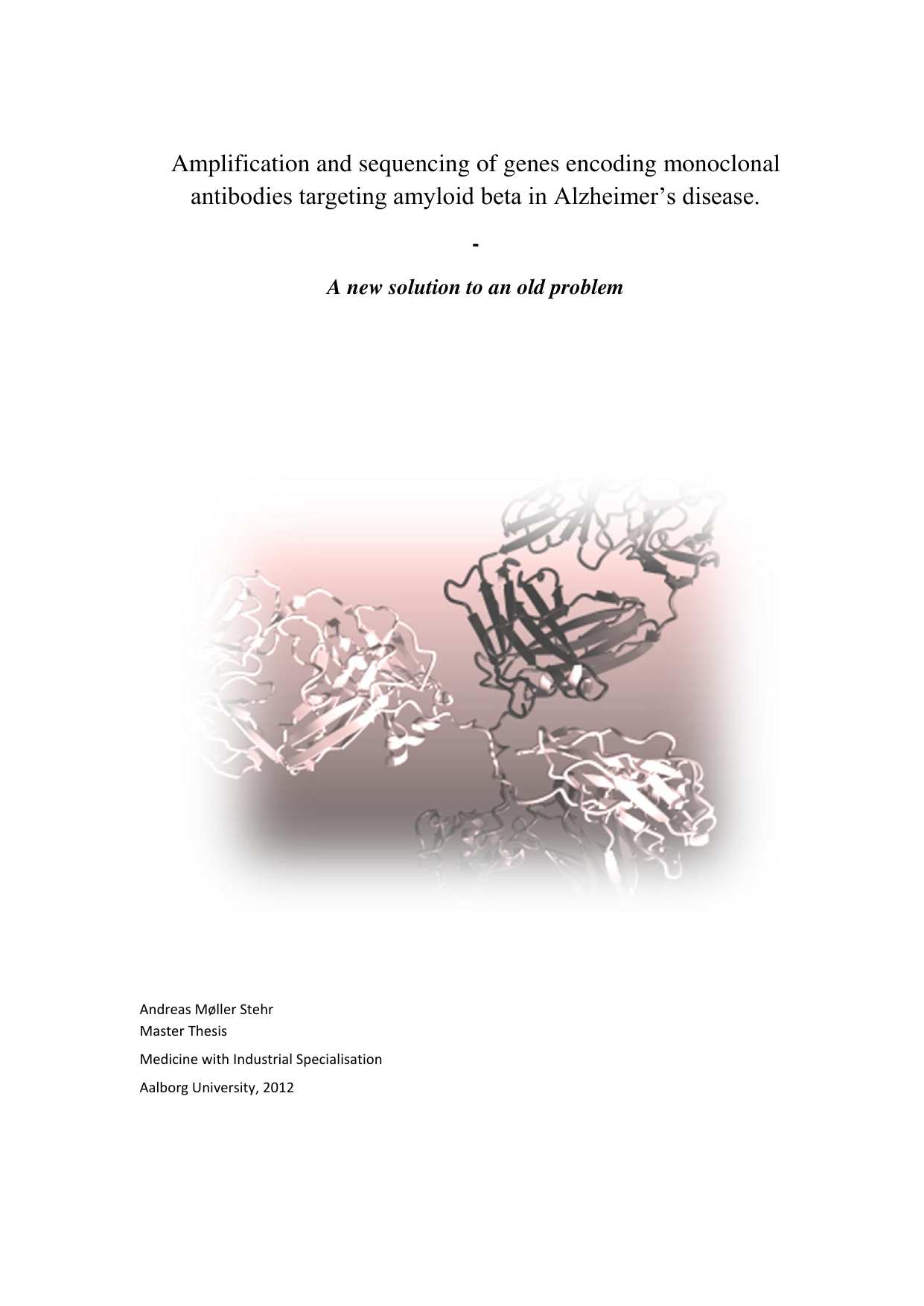
Amplification and sequencing cloning of genes encodingfrom known monoclonal recombinant antibodies targeting amyloid beta in Alzheimer’s disease. - A new solution to an old problem
Translated title
Amplification and sequencing cloning of genes encodingfrom known monoclonal recombinant antibodies targeting amyloid beta in Alzheimer’s disease. - A new solution to an old problem
Author
Term
4. term
Publication year
2012
Submitted on
2012-06-01
Pages
37
Abstract
Alzheimers disease is known to be the main cause of dementia, and in Europe alone 1.9% over the age of 65 is diagnosed with Alzheimer’s. Monoclonal antibodies are used as a potential new treatment against Alzheimer’s disease, and several studies have already been performed. However, one main obstacle remains; the blood brain barrier (BBB). Transfecting cells within the BBB with genes encoding such antibodies might overcome this obstacle. In order to transfect cells within the BBB, one needs to know the sequence of the antibodies for amplification and cloning. However the antibodies have highly variable areas making it difficult to amplify. Usually, this is performed by polymerase chain reaction using degenerated primers; however the accuracy and specificity can be discussed using this method. In this study I present a new method for sequencing antibodies using mRNA sequencing technique and tandem mass spectrometry. This new approach gives rise to results of high validity and specificity not previously seen in the literature.
Documents
